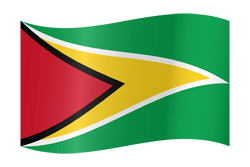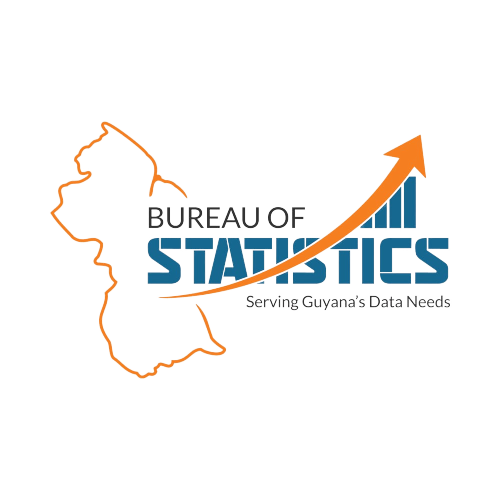The Sustainable Development Goals (SDGs) are the blueprint to achieve a better and more sustainable future for all. They address the global challenges we face, including those related to poverty, inequality, climate, environmental degradation, prosperity, and peace and justice. The Goals interconnect and in order to leave no one behind, it is important that we achieve each Goal and target by 2030.
The United Nations General Assembly adopted the Resolution 70/1, Transforming our World: the 2030 Agenda for Sustainable Development on 25th September 2015. This document lays out the 17 Sustainable Development Goals, which aim to end poverty and hunger, protect human rights and human dignity, to protect the planet from degradation, and foster peace. This Agenda is a plan of action for people, planet and prosperity. It also seeks to strengthen universal peace in larger freedom. We recognize that eradicating poverty in all its forms and dimensions, including extreme poverty, is the greatest global challenge and an indispensable requirement for sustainable development. All countries and all stakeholders, acting in collaborative partnership, will implement this plan. We are resolved to free the human race from the tyranny of poverty and want and to heal and secure our planet. We are determined to take the bold and transformative steps which are urgently needed to shift the world on to a sustainable and resilient path. As we embark on this collective journey, we pledge that no one will be left behind. To view the UN General Assembly Resolution Document Adopted on 25th September 2015. please click here
To view the UN General Assembly Resolution Document Adopted on 25th September 2015, please click here.
The 2030 Agenda forms the new global development framework anchored around 17 Sustainable Development Goals (SDGs) with a total of 169 targets covering economic, social development, and environmental protection. Poverty eradication is the overarching goal of the new agenda which is taking a far more ambitious approach than the Millennium Development Goals (MDGs) by promising to address the unfinished business of the MDGs and meet the growing challenges in the interlinked economic, social and environmental dimensions of sustainable development. The SDGs are the core of this new programme for development. The universal nature of the agenda will provide an opportunity for engagement and a new type of partnership to address the global challenges. Unlike the MDGs, the new agenda is applicable to all countries, developing and developed-rich and poor. The 2030 Agenda announces a “plan of action for the people, planet and prosperity.” It highlights strengthening “universal peace in larger freedom, “and recognizes eradicating poverty in all its forms and dimensions.
The 17 Sustainable Development Goals (SDGs) are the world’s best plan to build a better world for people and our planet by 2030.
To view the Goals, please click here.
To view the Classification of the Goals, Targets and Indicators, please click here.
To view the Metadata of the SDGs and Indicators, please click here.
To view or download CARICOM Core SDGs Indicators Assessment Report (PDF - 2.18MB), please click here.
Guyana presented its First Voluntary National Review, as expected, a technical, data-intensive process. Guyana has been and remains committed to evidence-based reporting and results-oriented planning. The VNR process aligns with these commitments and further reinforces the importance of strong data systems and institutions. Notwithstanding the late confirmation of Guyana’s participation at the High Level Political Forum 2019, the country undertook what should have been a nine to twelve-month review process in just under six months. A key consideration in developing the VNR is the desire to comprehensively tell Guyana’s story, supported by as much as data as possible. The VNR report was presented on the 18thJuly, 2019 at the High Level Political Forum (HLPF) by delegation comprising Minister of State – Hon. Dawn Hastings-Williams, Foreign Secretary – Mr. Carl Greenidge, Budget Director – Ms. Sonya Roopnauth, Guyana’s UN Mission in New York, other personnel from the Ministry of Finance and Ministry of Foreign Affairs as well as Civil Society.
To view or download Guyana's Voluntary National Review (VNR) Report 2019 (PDF - 16MB), please click here.
The Sendai Framework for Disaster Risk Reduction 2015-2030 (Sendai Framework) is the first major agreement of the post-2015 development agenda, with seven targets and four priorities for action. It was endorsed by the UN General Assembly following the 2015 Third UN World Conference on Disaster Risk Reduction (WCDRR). The Framework is a 15-year, voluntary, non-binding agreement which recognises that the State has the primary role to reduce disaster risk, but that responsibility should be shared with other stakeholders including local government, the private sector and other stakeholders. It aims for the following outcome: The substantial reduction of disaster risk and losses in lives, livelihoods and health and in the economic, physical, social, cultural and environmental assets of persons, businesses, communities and countries.
To view or download Sendai Framework Report (PDF - 999KB), please click here.
The SIDS Accelerated Modalities of Action (S.A.M.O.A) Pathway is an international framework that was developed as the outcome of the Third International Conference on Small Island Developing States (SIDS Conference) held on 1-4 September 2014 in Apia, Samoa. The Conference, with the overarching theme “The sustainable development of Small Island developing States through genuine and durable partnerships“, played a significant role in identifying SIDS priorities that needed to be considered in the formulation of the 2030 Agenda. The Caribbean region is home to a number of Small Islands Developing States (SIDS) that face similar development challenges, such as geographic and economic isolation, limited resources, environmental fragility, high costs of transportation and energy, and vulnerability to climate change and natural disasters. English and Dutch speaking Caribbean SIDS members include Anguilla, Antigua and Barbuda, Aruba, The Bahamas, Barbados, Belize, British Virgin Islands, Dominica, Grenada, Guyana, Jamaica, Montserrat, Saint Kitts and Nevis, Saint Lucia, Saint Vincent and the Grenadines, Suriname, and Trinidad and Tobago.
To view or download Update Report on the Implementation of the SAMOA Pathway by Guyana (PDF - 988KB), please click here.
The United Nations Framework Convention on Climate Change (UNFCCC) (Rio - 992) is a “Rio Convention”, one of three adopted at the “Rio Earth Summit” in 1992. Its sister Rio Conventions are the UN Convention on Biological Diversity and the Convention to Combat Desertification. The three are intrinsically linked. Guyana became a signatory to the United Nations Framework Convention on Climate Change (UNFCCC) at the United Nations Conference on Environment and Development (UNCED) in Rio de Janiero on June 13,1992 and attained ratification on August 29, 1994. The Convention entered into force for Guyana on November 17, 1994.
To view or download Guyana’s Second National Communication to the United Nations Framework Convention on Climate Change, please click here.


